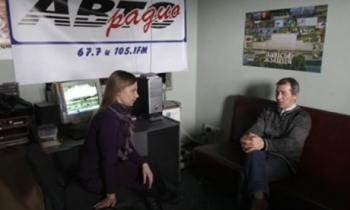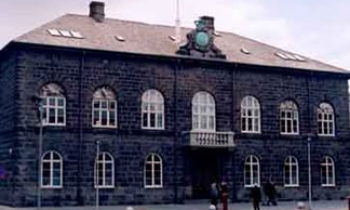The controversy over the publication of cartoons depicting the Prophet Mohammed took a violent turn at the weekend as radical forces in the Middle East sought to exploit it to score political gains.
A day after the Danish and Norwegian embassies in Damascus were set on fire by mobs, radicals in Lebanon broke a security barrier and fought teargas and water cannons to set fire to the Danish consulate in a Christian neighbourhood of Beirut.
Muslim religious leaders in Lebanon condemned the violence, which took a sectarian turn, when a Christian church near the Danish mission was also stoned.
Fouad Siniora, Lebanese prime minister, said the demonstration had been infiltrated by rogue elements carrying teargas and determined to provoke trouble. Among the 176 people arrested in Beirut yesterday, 76 were said to be Syrian.
The violence comes at a time of tense sectarian relations in Lebanon - a country that suffered a civil war in the 1970s and 1980s. The anti-Syrian coalition that dominates the government fears that Damascus, which controlled Lebanon until April, is trying to cause domestic unrest and pit religious groups against each other.
The cartoons have touched a raw nerve across the Arab and Muslim worlds, with protests and boycotts erupting in various countries. But the most violent incidents were on Saturday in Syria, where the Ba'athist regime is staunchly secular and protests are rarely held without government approval.
Damascus has been under intense international pressure, and has been fighting allegations of involvement in last year's killing of Rafiq Hariri, Lebanon's former prime minister. The regime may be seeking to rally domestic support by portraying itself as the champion of Arab and Islamic causes. With the cartoons turning into a new pretext for stoking anti-western sentiment, militants in the Iraqi insurgent stronghold of Ramadi yesterday called on supporters to attack Danish targets.
Angry protests were also staged in New Zealand where several hundred people marched in the capital Auckland, the day after Wellington's Dominion Post and the Christchurch's The Press printed the Danish cartoons. New Zealand's Ministry of Foreign Affairs and Trade immediately placed its staff in Muslim countries and Europe on high alert, fearing reprisals such as those that occurred in Syria and Lebanon.
Pakistan's foreign ministry at the weekend summoned the envoys of several European countries to protest against the publication of the cartoons.
"Across the Islamic world, the level of anti-US and anti-west anger remains high," said a Pakistani ministry official yesterday. "Even if our government is pro-west, our people are increasingly not. Episodes such as this blasphemous cartoon don't help."
Frank-Walter Steinmeier, German foreign minister, joined European politicians' attempts to calm the atmosphere. He played down talk of a "war of cultures", although he admitted that Muslim and western communities were further from a dialogue than had been hoped and wished.
Additional reporting by Sundeep Tucker in Sydney, Farhan Bokhari in Islamabad and Ralph Atkins in Frankfurt









